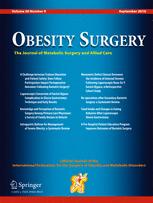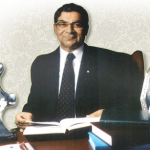 A former assistant professor at the Mount Sinai School of Medicine in New York fired a shotgun yesterday at two men– including the school’s dean, who had fired him six years ago.
A former assistant professor at the Mount Sinai School of Medicine in New York fired a shotgun yesterday at two men– including the school’s dean, who had fired him six years ago.
The New York Times reports that Hengjun Chao was taken into custody on charges of attempted murder, after his shots hit Mount Sinai dean Dennis Charney and another man outside of a suburban New York deli. Both men were treated at a local hospital for non-life-threatening injuries.
Chao was fired from Mount Sinai in 2010 after an investigating committee found that he Continue reading Former professor shoots dean who fired him for misconduct




 The U.S. Federal Trade Commission has charged a publisher of hundreds of academic journals with
The U.S. Federal Trade Commission has charged a publisher of hundreds of academic journals with  With retraction notices
With retraction notices 

